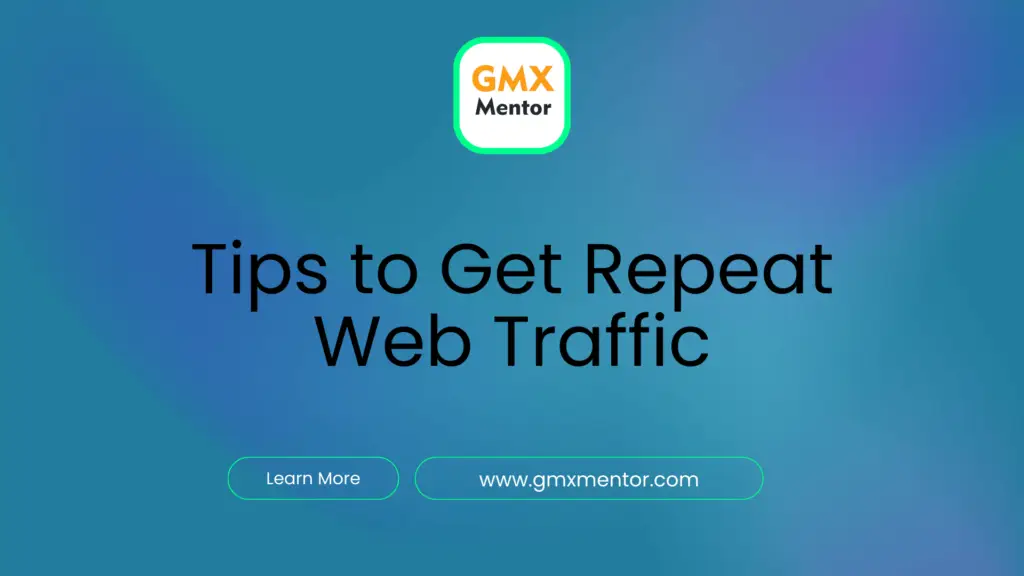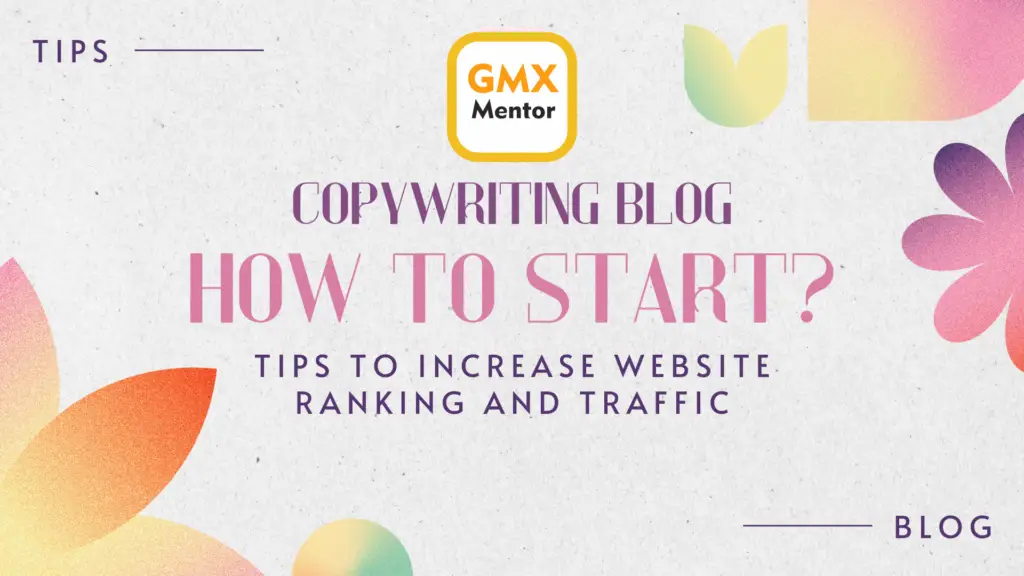Tips to Increase Website Ranking and Traffic
Tips to Increase Website Ranking and Traffic, In today’s digital landscape, having a well-optimized website is crucial for driving traffic and increasing your online visibility. The competition is fierce, and only the best strategies can help your website rise to the top of search engine results pages (SERPs). Below are some comprehensive tips to help you boost your website ranking and attract more visitors.
This is Table of Contents You Can Go Any Part of the Post just by Clicking Heading Here.
1. Create a Site with Valuable Content, Products, or Services
The foundation of any successful website is the value it provides to its visitors. Whether you offer unique products, top-notch services, or informative content, ensuring that your website meets the needs of your target audience is paramount. High-quality content that answers questions, solves problems, or entertains can significantly increase user engagement, reduce bounce rates, and improve your rankings.
- Quality Over Quantity: Focus on producing well-researched, in-depth articles, product descriptions, and service pages that genuinely help your audience.
- Content Consistency: Regularly update your content to keep it relevant and fresh. Search engines favor websites that provide updated information.
2. Optimize Your Content with Primary and Secondary Keywords
Keywords are the backbone of SEO. To attract the right audience, you need to strategically place primary and secondary keywords throughout your content.
- Keyword Placement: Ensure that your primary keywords appear within the first 25 words of your content. Distribute secondary keywords evenly throughout the text to maintain a natural flow.
- Avoid Keyword Stuffing: While it’s essential to use keywords, overloading your content with them can lead to penalties from search engines. Aim for a balance where your content remains user-friendly.
3. Conduct Thorough Keyword Research
Understanding the search terms your potential customers use is vital for attracting targeted traffic. Use tools like Google Keyword Planner, SEMrush, or Ahrefs to discover high-performing keywords relevant to your niche.
- Long-Tail Keywords: Targeting long-tail keywords (specific, less competitive phrases) can help you rank faster and attract more qualified traffic.
- Competitive Analysis: Analyze the keywords your competitors are ranking for and identify opportunities where you can outperform them.
4. Optimize On-Page Elements
On-page SEO refers to the practice of optimizing individual web pages to rank higher and earn more relevant traffic in search engines. Key on-page elements include:
- Title Tags: Your title tag should be compelling and include your primary keyword. It’s the first thing users see in the SERPs, so make it count.
- Meta Descriptions: A well-crafted meta description can improve your click-through rate (CTR). Ensure it includes your primary keyword and clearly describes the content of the page.
- Headers (H1, H2, H3): Use headers to break up your content into digestible sections. Include keywords in your headers to signal the importance of the content to search engines.
- Image Alt Text: Search engines cannot read images, so include descriptive alt text to help them understand the context of the images on your site.
5. Simplify Your Website Design
User experience (UX) plays a crucial role in your website’s success. A clean, simple design ensures that visitors can easily navigate your site, find what they need, and complete actions like making a purchase or filling out a contact form.
- Responsive Design: Ensure your website is mobile-friendly. A significant portion of web traffic comes from mobile devices, and Google considers mobile-friendliness a ranking factor.
- Fast Load Times: Slow websites frustrate users and can lead to high bounce rates. Optimize your images, use caching, and consider a Content Delivery Network (CDN) to speed up your site.
6. Submit Your Website to Search Engines
Manually submitting your website to search engines ensures that your site is indexed properly. While search engines like Google automatically crawl the web, submitting your site can speed up the process and help you get indexed sooner.
- Submit All Pages: Don’t just submit your homepage. Ensure that all important pages are submitted to search engines and directories.
- Sitemaps: Create and submit a sitemap to search engines. This helps them understand your site’s structure and ensures that all your pages are crawled and indexed.
7. Monitor Search Engine Algorithms
Search engine algorithms are constantly evolving. Staying up-to-date with these changes is essential to maintaining or improving your rankings.
- SEO News and Updates: Follow SEO blogs and news sites to stay informed about algorithm changes. Google often releases updates that can impact your site’s performance.
- Adjust Your Strategy: If an algorithm update negatively impacts your site, be prepared to adjust your SEO strategy accordingly. Regular audits can help you identify and fix issues.
8. Analyze Competitors and Top-Ranked Websites
Learning from your competitors and the top websites in your niche can provide valuable insights into what works.
- Content Analysis: Examine the content that ranks well in your industry. Identify gaps in your own content and look for ways to offer something even better.
- Backlink Analysis: Use tools like Ahrefs or Moz to analyze your competitors’ backlinks. Building high-quality backlinks is crucial for improving your domain authority and ranking.

9. Leverage Web Hosting Reports and Analytics
Understanding where your traffic comes from and how visitors interact with your site is key to optimizing your performance.
- Traffic Sources: Use Google Analytics to monitor the sources of your traffic. Determine whether visitors are coming from search engines, social media, or referral sites.
- User Behavior: Analyze how users navigate your site, which pages they visit most, and where they drop off. This can help you improve your content and user experience.
10. Engage Your Audience with Newsletters and Free Offers
Keeping your audience engaged encourages repeat visits and builds brand loyalty.
More Tips to Increase Website Ranking and Traffic
- Newsletters: Regularly send out newsletters with valuable content, special offers, and updates. This keeps your audience informed and connected to your brand.
- Incentives: Offer discounts, free reports, or coupons to encourage repeat visits and conversions.
11. Establish Yourself as an Industry Expert
Positioning yourself as an authority in your field can significantly boost your website’s credibility and attract more traffic.
- Guest Blogging: Write guest posts for reputable websites in your industry. This not only builds backlinks but also exposes your expertise to a broader audience.
- Content Marketing: Create in-depth guides, whitepapers, and case studies that showcase your knowledge and provide value to your audience.
12. Streamline Payment and Shipping Processes

For e-commerce websites, a seamless checkout process is crucial for converting visitors into customers.
- Simplified Checkout: Reduce the number of steps in your checkout process. Allow guest checkouts and offer multiple payment options to make the process as easy as possible.
- Transparent Shipping: Clearly communicate shipping costs and delivery times. Offer tracking and multiple shipping options to enhance the customer experience.
13. Invest in Professional SEO Services
If you’re not confident in your ability to optimize your website, hiring a professional SEO service can be a wise investment.
- Cost vs. Benefit: While it may seem expensive, professional SEO services can save you time and improve your ROI by ensuring that your site is optimized correctly.
- Customized Strategies: SEO professionals can create tailored strategies that align with your business goals and industry trends.
14. Treat Your Website as a Dynamic Sales Tool
Your website is not just an online brochure; it’s a powerful sales tool that should be continuously optimized and updated.
- Regular Updates: Regularly update your site with new content, products, and features. A dynamic site keeps visitors engaged and encourages return visits.
- Continuous Improvement: Always look for ways to improve your website’s performance, whether through design tweaks, content updates, or SEO enhancements.
Conclusion
Increasing your website’s ranking and traffic is an ongoing process that requires dedication and strategic planning. By following these tips, you can enhance your website’s visibility, attract more visitors, and ultimately drive more conversions. Remember, the digital landscape is ever-changing, so staying informed and adaptable is key to long-term success.
Follow Us on Social: Facebook and get more Tips to Increase Website Ranking and Traffic
FAQs
1. Why is content quality important for website ranking?
Content quality is crucial because search engines prioritize websites that offer valuable, relevant information to users. High-quality content improves user engagement, reduces bounce rates, and increases the likelihood of backlinks, all of which positively impact your ranking.
2. How can I effectively use keywords in my content?
To use keywords effectively, place them naturally within your content, especially in titles, headers, and the first 25 words. Avoid keyword stuffing, and focus on creating content that reads well while still including your primary and secondary keywords.
3. What tools can I use for keyword research?
Popular keyword research tools include Google Keyword Planner, SEMrush, Ahrefs, and Moz. These tools help you find high-performing keywords relevant to your niche, including long-tail keywords that can attract more targeted traffic.
4. How often should I update my website?
The frequency of updates depends on your industry, but as a general rule, aim to update your website at least once a month. Regular updates signal to search engines that your site is active, which can positively affect your ranking.
5. What are the benefits of manual search engine submission?
Manual submission ensures that all your important pages are indexed by search engines. Unlike automated submissions, manual submission allows for greater control and ensure that your pages meet the specific guidelines of each search engine.
6. How do I stay informed about changes in search engine algorithms?
Follow SEO news websites, subscribe to industry newsletters, and join online forums or communities. Staying informed allows you to adapt your SEO strategy quickly in response to algorithm updates.
**7. What should I look for when analyzing competitor
websites?**
Focus on their content quality, keyword usage, backlink profile, and overall site design. Identifying what they do well can provide insights into areas where you can improve or differentiate your site.
8. How can I encourage repeat visits to my website?
Engage your audience with newsletters, exclusive offers, and fresh content. Providing valuable resources and maintaining a user-friendly site experience will encourage visitors to return.
9. Why is it important to establish yourself as an industry expert?
Establishing yourself as an expert builds trust with your audience, increases brand credibility, and can attract more traffic through backlinks and referrals from other industry leaders.
10. When should I consider hiring a professional SEO service?
Consider hiring a professional SEO service if you lack the time or expertise to manage your website’s SEO effectively. A professional service can offer customized strategies and ensure your site is optimized for search engines.
Here are the FAQs for the article “Tips to Increase Ranking and Website Traffic”:
FAQs: Tips to Increase Ranking and Website Traffic
1. Why is it important to have valuable content on my website?
Valuable content is crucial because it attracts and engages visitors, improves user experience, and increases the likelihood of gaining backlinks, which are essential for higher search engine rankings.
2. How should I place keywords in my content?
Keywords should be strategically placed within the first 25 words of your content, in the title tags, meta descriptions, headers, and evenly throughout the text. This helps search engines understand the relevance of your content.
3. What are long-tail keywords, and why should I use them?
Long-tail keywords are specific phrases that are less competitive but highly relevant to your niche. Using them can help you rank faster in search engines and attract more targeted traffic.
4. What is on-page SEO, and why is it important?
On-page SEO involves optimizing individual web pages to rank higher in search engines. It’s important because it directly impacts how search engines understand and rank your content.
5. How often should I update my website?
Updating your website regularly, at least once a month, is recommended to keep your content fresh and relevant, which can positively affect your search engine rankings.
6. Why should I manually submit my website to search engines?
Manual submission ensures that all important pages of your website are indexed by search engines. It gives you greater control over the submission process and ensures compliance with search engine guidelines.
7. How can I stay informed about changes in search engine algorithms?
Staying informed about algorithm changes can be achieved by following SEO news websites, subscribing to industry newsletters, and participating in online SEO communities.
8. What should I analyze when looking at competitor websites?
When analyzing competitor websites, focus on their content quality, keyword usage, backlink profile, user experience, and overall site design. This can provide insights into strategies that work well in your industry.
9. How can I increase repeat visits to my website?
Encourage repeat visits by engaging your audience with newsletters, special offers, fresh content, and a user-friendly website experience. Providing valuable resources and maintaining good communication also helps.
10. What are the benefits of establishing myself as an industry expert?
Establishing yourself as an industry expert builds trust with your audience, enhances brand credibility, and can lead to more traffic through backlinks, referrals, and increased visibility.
11. When should I consider hiring a professional SEO service?
Consider hiring a professional SEO service if you lack the time, expertise, or resources to manage your website’s SEO effectively. Professionals can provide customized strategies to improve your site’s performance.
12. How can I simplify my website design to improve user experience?
Simplify your website design by ensuring it’s easy to navigate, mobile-friendly, and fast-loading. A clean design helps visitors find what they need quickly, improving their overall experience and reducing bounce rates.
13. What tools can I use to track and analyze my website’s traffic?
Tools like Google Analytics can help you track and analyze your website’s traffic, visitor behavior, and the effectiveness of your SEO efforts. These insights are essential for optimizing your site’s performance.
14. Why is it important to monitor search engine algorithms?
Monitoring search engine algorithms is important because they constantly evolve, and changes can impact your website’s ranking. Staying updated allows you to adapt your SEO strategy to maintain or improve your rankings.
15. What are the advantages of offering newsletters and free offers to visitors?
Newsletters and free offers help keep your audience engaged, encourage repeat visits, and build a loyal customer base. They also provide opportunities to share valuable content and promote your products or services.



